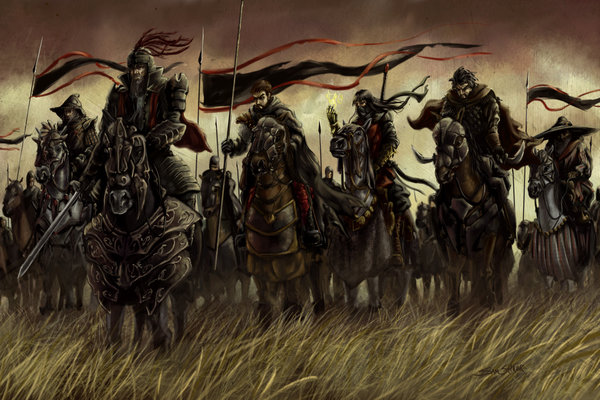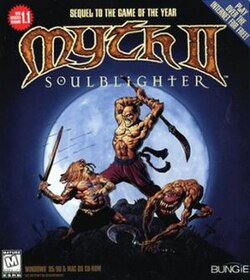There are many powerful themes that have been latent in modern fantasy which find their reprisal in the Black Company. Magic, for example, is no domesticated Harry Potter expecto patronus but rather a dangerous, powerful, almost living thing. Those who make use of it are on the order of minor demigods and the way this affects the human mind and sense of control is deeply explored in the characters of the Taken; when the interior reality and the exterior reality are seamlessly fluid the regular concerns of morality may fall away. Glen Cook's world is a grim one, a psychedelic land of meathook realities.
Immensely powerful magi may still be waylaid by a few men hiding in ambush if they can plan their timing right. Magic itself is bounded only by the limits of the magus' imagination. Sorcerers are feared, and rightly so, for their inability to control their tempers. They are reduced to god-children in their behaviors because of the sheer destructive force they can wield.
There are no little boys growing up to be heroes in the Black Company. These are stories of grim battle-hardened soldiers (mercenaries, really) doing what they can to make some coin and maintain a sense of community in the Company.
Myth manages to capture all of these aspects of the Black Company completely. A benighted Legion fighting against all odds to defeat the Fallen Lords and their mighty armies of the shambling, stumbling, walking corpses (all armed with broad-bladed axes and a basic intelligence to kill, to move on and do the bidding of their necromantic masters) the game revels in its characterization of the powerful Fallen.
While many of your foes are nameless thrall raised in service to the Dark, you will spend the entire time learning about the mysterious past of these nameless sorcerers: The Watcher, Bahl'al, The Deceiver, Soulblighter, Balor, Shiver... and your own cadre of magicians (the Nine, or the Avatara) who obliquely guide the war effort but are rarely seen up close. Names like Rabican, Cu Roi, Murgen, Maeldun, and Alric echoe through the game as they maneuver just out of sight of your little rag-tag detachment of the Legion.
The lore is deep and murky, hardly explained in-game and yet referenced again and again to allow the player to build up an idea of the kind of world that Myth inhabits. The ruins of Tyr and Shoal, the Siege of Madrigal, the Flight from Covenant... all of these things smack of mythic overtones which the game bears out. Cleverly, there is a system in place by which all individuals you command are named: their kills are tracked and they improve as they score more and more murders of their foes... and you will weep bitter tears of blood when they die, never to be seen again in that playthrough.
There is an abiding attraction to Myth and to the Black Company both which informs the 10th Age. The movement of armies is part of the reason I love history and fantasy. Thematically, both have strongly influenced the way magic is presented in the 10th Age as well—while still hard and mindshatteringly rote, it nevertheless propels 10th Age men and women into a sphere of demigods who may or may not lose touch with all that made them mortal and moral.



No comments:
Post a Comment